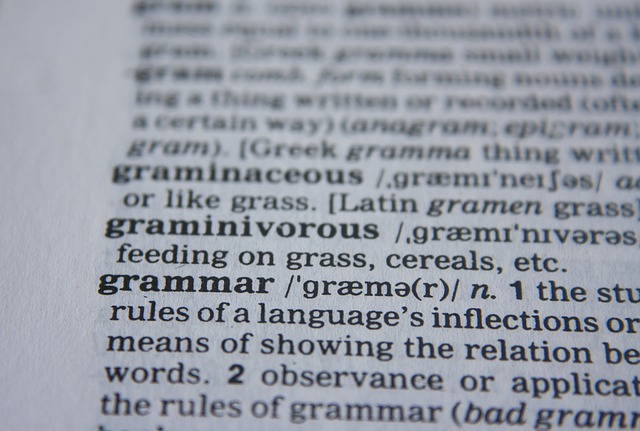Do I have to learn all these grammar terms?
Imagine that someone takes a car to a garage to be repaired. The mechanic there doesn't seem to know the names of the parts of the car. He keeps referring to "the round things" or "the part that makes the car go." We probably would think the mechanic didn't know his job well.
 Just as we expect experts to know the names of things, when we become writers, we should know the names of things. For example, it helps to know the terms we use to talk about language. Knowing these words allows us to communicate efficiently about language. Of course, it is not necessary to know these words to speak a language, just as it isn't necessary to know the names of car parts in order to fix them. We all learn our first languages without learning what a verb and noun are. However, when we speak about grammar, especially when we discuss writing, it helps if we can refer to language using precise vocabulary.
Just as we expect experts to know the names of things, when we become writers, we should know the names of things. For example, it helps to know the terms we use to talk about language. Knowing these words allows us to communicate efficiently about language. Of course, it is not necessary to know these words to speak a language, just as it isn't necessary to know the names of car parts in order to fix them. We all learn our first languages without learning what a verb and noun are. However, when we speak about grammar, especially when we discuss writing, it helps if we can refer to language using precise vocabulary.
There are many sources on the internet and in books that explain grammar terms. Not all of them will use exactly the same words for the same grammatical points (I know, it's frustrating!). However, if you get into the habit of learning to identify parts of grammar, you will move forward in your understanding of written English.
Here are three sites and three books you can use to look up grammatical terms.
(Links open in new windows, so you do not lose your place in the course. If you can't find this page after going to a link, be sure you look behind other open windows.)
Websites
Books
- Oxford Learner's Grammar: Grammar Finder , by John Eastwood, Oxford University Press, 2005.
- Grammar for Writing, by Joyce Cain, Pearson Publishers, 2012. Three levels are available.
- Rhetorical Grammar, by Martha Kolln and Loretta Gray, Longman Publishers, 2012.
Comments
Post a Comment